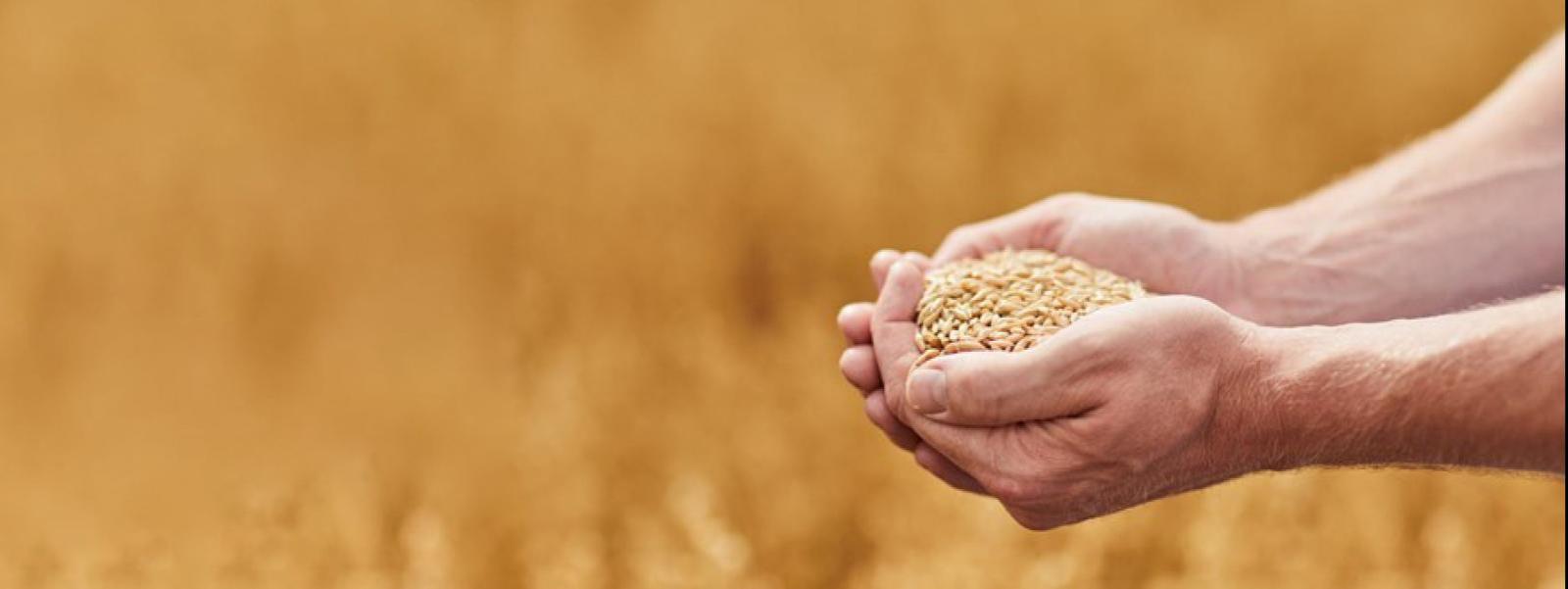
Tirlán’s Irish Oats have one of the Lowest Carbon Footprints in the World
Tirlán, in conjunction with Teagasc, invested in developing a new Life Cycle Assessment (LCA) model which was used to complete Ireland’s first carbon footprint analysis of commercially grown Irish grain, from seed to farm gate. Teagasc carried out the research and data collection for individual grain growers, with the assistance of the Tirlán agronomy team, using information from 48 Tirlán grain suppliers, covering 11,500ha of land in 2022.
The research is the first of its kind using a LCA methodology specifically developed for Irish grain on a wide range of crops, including oats, wheat, and barley. This research serves as a cornerstone to enhance the overall sustainability of Tirlán’s grain portfolio.
The data showed the gross carbon footprint of Tirlán oats was low at 207 kg CO2 equivalent/t product, or 232 kg CO2 equivalent/t product, when adjusted to allow for drying.
The carbon footprint is the amount of carbon released into the atmosphere when producing a unit of produce.
John Kealy, Tirlán Head of Grains, said: “The results for Irish grain shown in the Life Cycle Analysis are a strong endorsement of the sector’s sustainability credentials and highlight the important role of Irish grains within the agricultural sector and along the value chain.”
Kieran Duggan, Interim Head of Plant Category, said: “Sustainability is a key consideration for plant-based ingredients. It is becoming increasingly important for food and beverage manufacturers to leverage the sustainability reputation of oats to increase the attractiveness of their products to consumers. The commitment that Tirlán oat growers have to sustainable practices plays a crucial role in the commercialisation of Tirlán’s oat ingredients.”
How do these results compare to oat crops internationally?
The study found the carbon footprint of Tirlán’s Irish grain is very low compared to grains produced in other regions in Europe and North America.
John Spink, Teagasc Head of Crops Environment and Land Use Programme, stated: “In warmer countries like Italy and Spain, the figure would be closer to 1000 kg CO2/t.” In comparison to strong oat producing countries like Finland and Canada, the carbon footprint of Tirlán oats is about half.
Why is the carbon footprint of Tirlán’s Irish oats lower?
John Spink, Teagasc Head of Crops Environment and Land Use Programme, stated: “Irish growers generally have a very low carbon footprint and the results of this study support it. The most influential factors impacting the carbon footprint of the grain pool are good crop nutrition and high yields.”
Ireland’s temperate climate with plentiful rainfall makes it the perfect environment for growing high yield oat crops. Tirlán oat growers also provide great care to their land to maximum efficiency, leading to higher yields. These higher yields decrease the carbon footprint per kg of oats.
Carbon Sequestration
Through progressive farm management, such as cover crops, crop rotation, straw incorporation, and nutrient management planning, there is potential to hold and increase carbon in the soil, thereby reducing the amount of carbon emissions released into the atmosphere.
John Spink, Teagasc Head of Crops Environment and Land Use Programme, stated: “When the carbon sequestered by straw incorporation was included in the calculations the figure dropped dramatically, giving an average net carbon footprint of 38 kg CO2/t, with a number of the crops at or below net zero.”
Sustainability Award
In February 2024, Tirlán hosted the 2023 Tirlán Quality Grain Award, adding a new award for Sustainability. The winner, Mark Sheridan from Navan, Co. Meath, had three crops in the Top Five of the lowest carbon footprint results from the study. He adopted widespread use of straw incorporation, and his Winter Oats were carbon neutral. It was an exceptional performance amid some really high standards and a sign of the quality of Irish grain.
For more information contact Avril Collins, Marketing Manager Ingredients at avrilcollins@tirlan.ie
Tirlán Ingredients
Tirlán provides world-class dairy and plant-based ingredients to markets across the globe.
Tirlán’s plant-based ingredients portfolio includes an extensive range of oat flakes, flours, and liquid. Sourced from Irish family farms, great care is taken to guarantee the highest quality of oats - conventional, organic, and gluten-free.
The range of oat flakes, flours and liquid can be used in a variety of applications to deliver great tasting, highly functional and nutritious products.
Teagasc
Teagasc – the Agriculture and Food Development Authority – is Ireland’s national body providing integrated research, advisory and training services to the agriculture and food industry and rural communities.